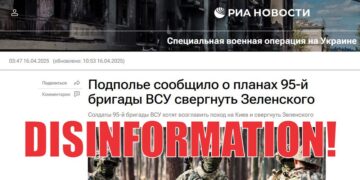North Macedonia has completed numerous reforms, and some were truly painful. That is why we believe North Macedonia deserves to open the accession negotiations as soon as possible. We’d like it to happen during the Portuguese presidency, to have the first inter-governmental conference, also known as the formal beginning of the accession negotiations, says Nives Tiganj, Croatia’s Ambassador to North Macedonia, in an interview with MIA.
Croatia, she adds, encourages and supports the dialogue between North Macedonia and Bulgaria in order to find a solution. She says it’s necessary to continue the reform process, backed by a consensus of all political forces in the country.
“It’s crucial, because such an approach confirms the dedication of your country for your strategic goal, which is to join the EU. Croatia also had a bilateral obstacle on its path to the EU, so I have to say that we absolutely achieved a political consensus, all political stakeholders in the country had a clear goal and a clear stance regarding a membership in the EU,” the Croatian Ambassador says.
Tiganj also points out that the European perspective in the region is doubtlessly there, and that the EU is dedicated to its policy to expand to the Western Balkans.
MIA spoke to Ambassador Tiganj ahead of Croatia’s Statehood Day (May 30).
May 30 was Statehood Day in Croatia. What activities were done to mark this day, considering the pandemic is still ongoing?
The Croatian multi-party parliament was established on May 30, 1990, and it’s now regarded as Statehood Day. Unfortunately, we were unable to celebrate this year due to the pandemic and the safety measures, so we couldn’t do our typical diplomatic reception. Last year, we visited the hospitals, the medical staff that fights COVID-19 on the front lines, and this year we’ll visit the October 11 residential institution for children without parents. It’ll be a joint action by the Croatian Embassy and the Croatian Business Club to hand over a donation to support the staff, but we will also send a message to the children that they are not alone and they are not forgotten.
Croatia is a strong supporter of North Macedonia’s EU integrations, continually supporting the opening of the accession negotiations. President Zoran Milanović expressed his support at the Brdo-Brijuni Summit. Due to the bilateral dispute with Bulgaria, related to historical issues, North Macedonia can’t open negotiations. Do you think this should be an obstacle or a precondition to start negotiations, because Skopje has fulfilled all of EU’s conditions?
Generally, Croatia supports the process for the European integrations of North Macedonia. The country has completed numerous reforms, and some of them were truly painful. That’s why we think North Macedonia deserves to open negotiations as soon as possible, and we’re expecting this to happen soon. We’d like it to happen during the Portuguese presidency, to have the first inter-governmental conference, also known as the formal beginning of the accession negotiations.
Croatia expects, motivates and continues the continuation of the dialogue with Bulgaria in order to find a compromise. We are also motivating the continuation of all reform processes with a consensus for all political forces. This is very important, because such an approach confirms your country’s dedication to your strategic goal – membership into the EU.
Croatia faced a bilateral problem on its way to accension to the EU, with Slovenia, what would you recommend in terms of this issue?
Yes, Croatia also faced a bilateral obstacle on its path towards the EU, so I have to say we reached a political consensus, all political stakeholders in the country had a clear goal and a clear stance regarding the EU membership, and this goal gave us the strength to dedicate ourselves to the dialogue and to reach a compromise, and that’s how we became a member of the EU on July 1, 2013. Therefore, it’s important, and that’s our message to North Macedonia, to have a clear goal, to be dedicated to the dialogue and to make efforts to reach that goal.
The Portuguese presidency put forward a proposal, making efforts to get the negotiations for North Macedonia started by the end of June. If the EU doesn’t deliver, as in, if the first inter-governmental conference with North Macedonia and Albania doesn’t happen, what kind of message will that send to the whole Western Balkans region? What will the Union’s regional credibility be then?
I’d like to focus on the current activities and avoid focusing on negative consequences, nor “what if” questions. What’s fact now is that the European perspective of the Western Balkans is doubtless. Let me remind you of the time Croatia was president of the EU Council, when we made a decision despite the pandemic, to open negotiations with North Macedonia and Albania.
Let me remind you of the German presidency’s engagement, and as you mentioned, the current Portuguese presidency. The document that was presented last week to Skopje and Sofia in order to find a solution to the dispute between your country and Bulgaria and to unblock the European path for Macedonia. These are concrete moves, concrete activities by the European Union and a clear goal of the EU’s dedication to the countries of the Western Balkans, and the enlargement policy to the Western Balkans.
You already mentioned the support from Croatia for North Macedonia, could you tell us more about the experience exchange in the negotiation process? What sort of projects are you working on?
Alongside the strong political support, Croatia supports the North Macedonian institutions technically in order to make the country prepared for its negotiation process with the EU. When we became a full-fledged member of the EU, when our negotiations ended, we decided to put all of our knowledge, experiences, studies and expertise in one spot, to save them and activate them and share them with all countries in Southeast Europe in their accession process. This is our proof to show how dedicated we are and how much we support countries in the region in their accession process.
We’re doing this through various means, mainly through twinning projects, and I must say that our number of 14 twinning projects in North Macedonia, some of which are finished and some of which are still being conducted, tells us that we are the most active member country that provides technical assistance to North Macedonia’s institutions.

Next year, Croatia and North Macedonia are marking 30 years since establishing bilateral relations. How would you rate them? Is there possibility to strengthen economic support?
Bilateral relations for North Macedonia and Croatia are traditionally good, friendly, and there is always an option to improve those relations, especially when talking about the economy. That’s why the Croatian embassy established and initiated the Croatian Business Club, in order to motivate market exchange between both countries. I have to say that the Croatian companies’ interest to place their products on the Macedonian market is evident and vice versa, so there is fluctuation and interest, so it’s something for us to work on.
However, despite this area of cooperation, Croatia and North Macedonia have an excellent possibility to collaborate in tourism, so both countries have something to present, so there is a possibility to improve our cooperation in culture, education, healthcare etc. There is truly a wide spectrum of areas of cooperation where both countries can contribute, and I believe President Stevo Pendarovski’s upcoming visit to Zagreb will surely be an excellent opportunity to define the promotion of our further bilateral support.
How do you deem the respect of rights of the Macedonian minority in Croatia and vice versa? What’s being done to improve the rights of the Croatian and Macedonian minorities in either country?
The Croatian national minority in North Macedonia and the Macedonian minority in Croatia are important segments and a wealth for our bilateral relation. I have to commend the efforts of the North Macedonia government for what they’re doing to improve things for the Croatian community in North Macedonia. We have intensive cooperation with authorized representatives of the government of North Macedonia about this, and what we’re expecting and hoping for with the pandemic measures, is to keep working and implementing the Mutual Minority Protection Agreement through maintaining an inter-governmental mixed committee to determine what’s been done already and to define further work directions.
Neda Dimova Prokikj
Photos by Frosina Naskovikj
Video by Asllan Vishko
Translated by Dragana Knezhevikj












